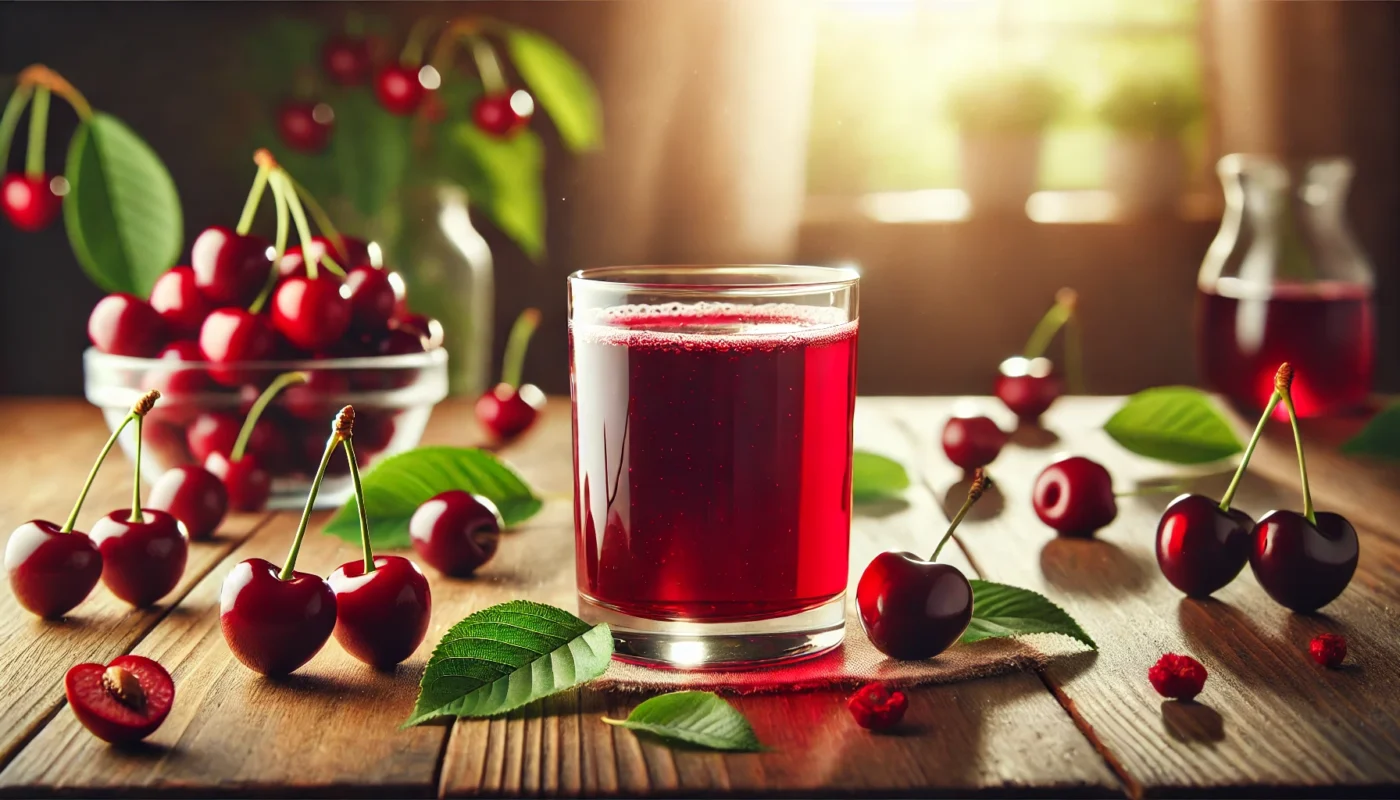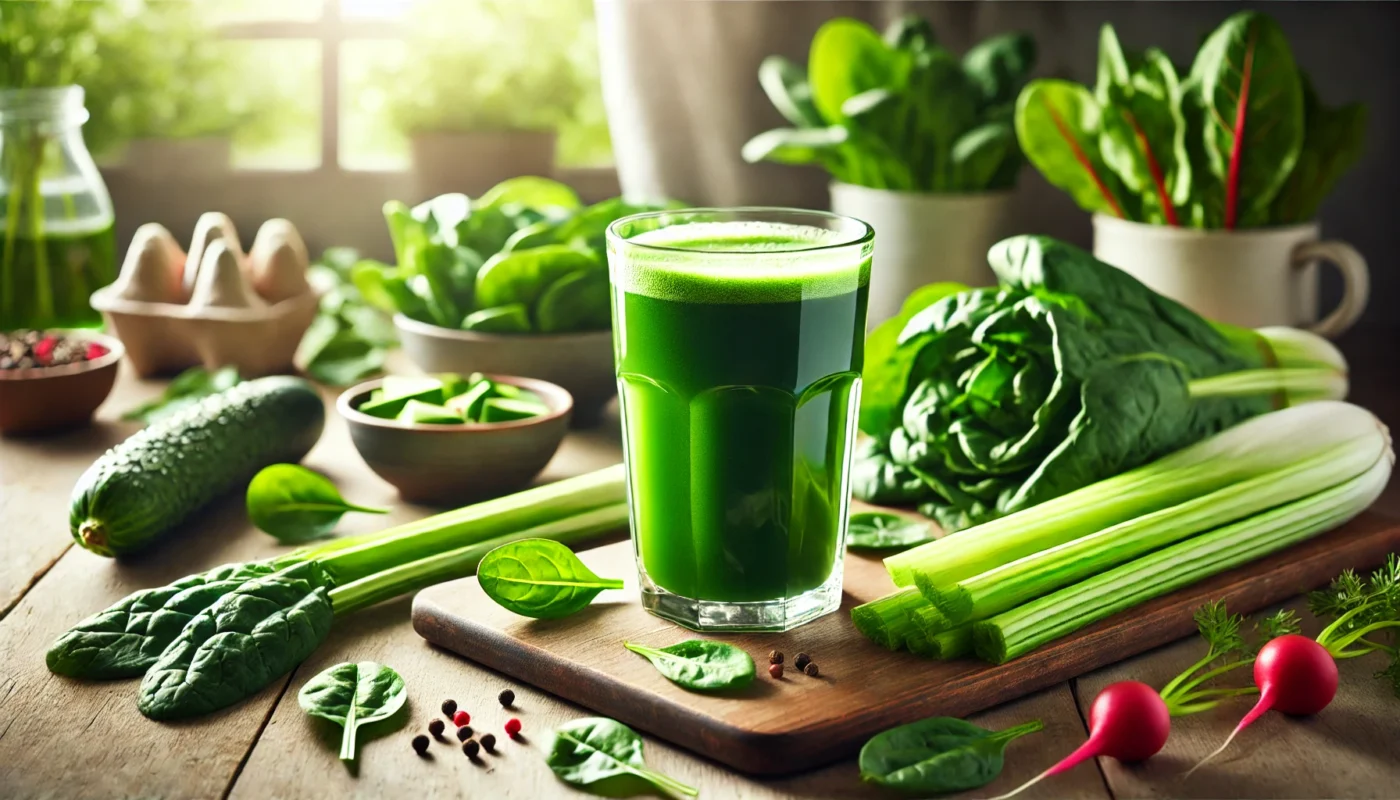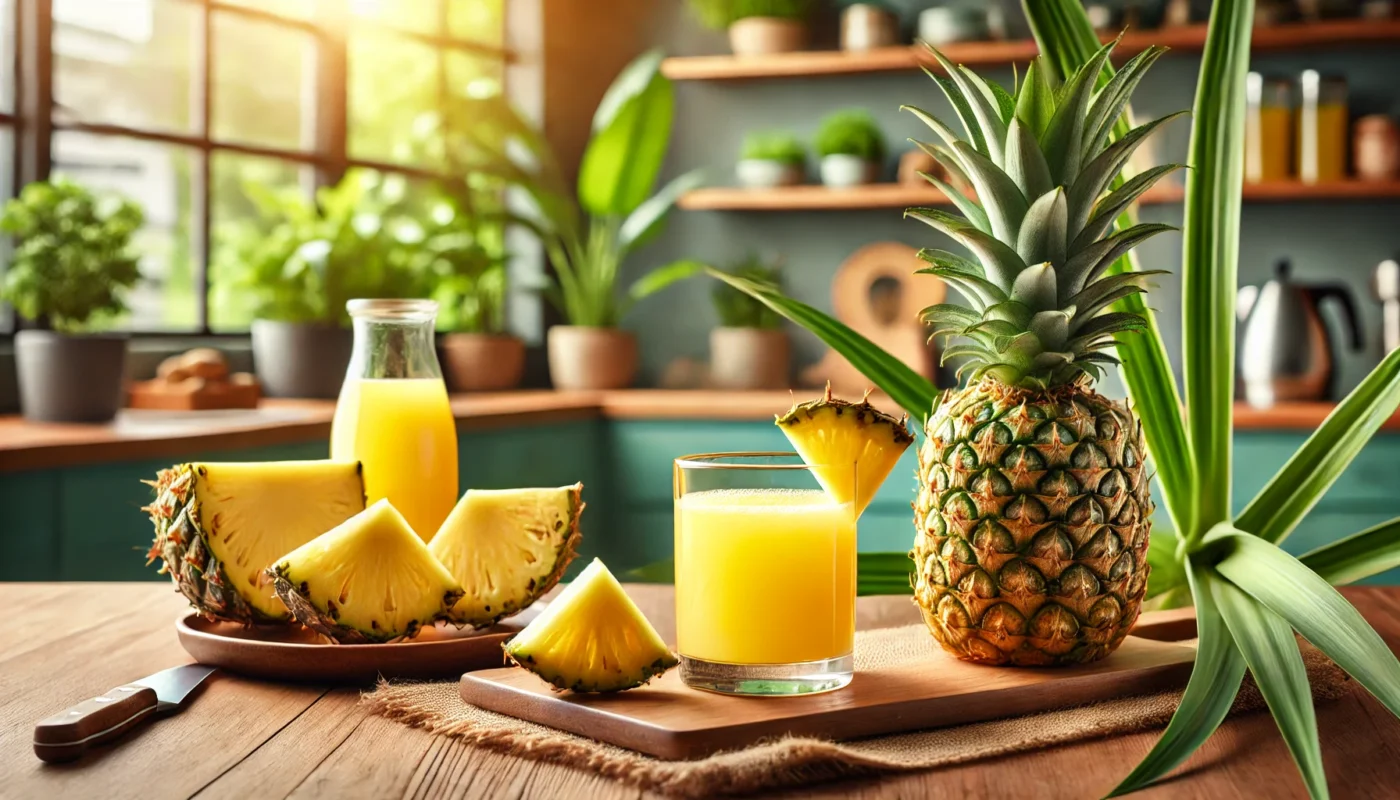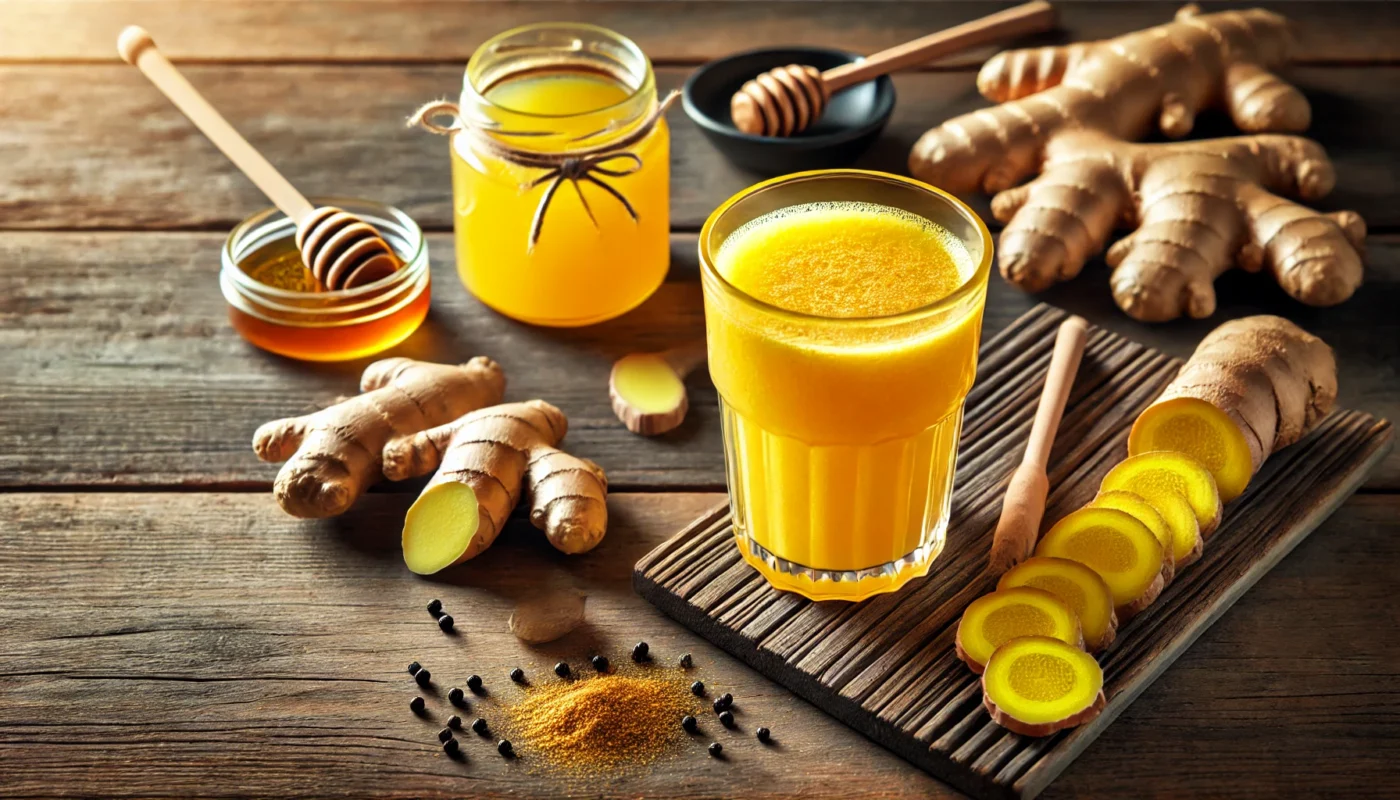Inflammation is a natural response of our immune system. However, when it becomes chronic, it can lead to various health issues.
One way to manage inflammation is through our diet. Certain foods and drinks, including specific juices, contain anti-inflammatory compounds that can help reduce inflammation.
This article aims to provide a comprehensive guide on the best juices for combating inflammation. We will delve into the science behind these anti-inflammatory juices, making it accessible and practical for everyone.
Whether you’re a fitness enthusiast, a health enthusiast, or a medical patient, this guide will help you understand and apply these health practices for improved wellbeing.
We will explore juices like tart cherry, pineapple, turmeric, and more, discussing their benefits and how to incorporate them into your diet.
We will also provide practical tips on juice preparation, storage, and consumption. Plus, we’ll discuss potential interactions and considerations to keep in mind.
By the end of this article, you’ll have a better understanding of how to use these juices to combat inflammation naturally. So, let’s dive in and start our journey towards a healthier, inflammation-free life.
You May Also Like: 20 Powerful Anti-Inflammatory Foods to Try
Understanding Inflammation and Its Effects on Health
Inflammation is the body’s natural defense mechanism. It aids in fighting infections and repairing damaged tissues. While acute inflammation is beneficial and necessary, chronic inflammation can be harmful.
Chronic inflammation persists over time and can contribute to various health issues. It has been linked to conditions such as heart disease, arthritis, and certain cancers. Thus, understanding and managing inflammation is crucial for long-term health.
Several factors can lead to chronic inflammation. Poor diet, stress, lack of exercise, and exposure to environmental toxins are significant contributors. Recognizing these factors can help in devising strategies to reduce inflammation.
Diet, in particular, plays a key role in modulating inflammation. Certain foods and drinks can either promote or reduce inflammatory responses in the body. By choosing anti-inflammatory options, we can better manage inflammation.
Here are some effects of chronic inflammation on health:
- Increased risk of chronic diseases, such as diabetes and cardiovascular diseases.
- Acceleration of the aging process and potential impact on lifespan.
- Contribution to mental health issues, such as depression and anxiety.
Understanding these effects emphasizes the importance of managing inflammation through a holistic approach. This includes diet, lifestyle modifications, and stress management. By doing so, we can support our health and wellbeing in the long term.
The Science Behind Anti-Inflammatory Juices
Anti-inflammatory juices contain a variety of compounds that can help reduce inflammation. These compounds often include antioxidants, vitamins, and phytochemicals that work in harmony. Understanding how these components function is important to fully harness their benefits.
Antioxidants play a pivotal role in counteracting oxidative stress, which can promote inflammation. By neutralizing free radicals, antioxidants help protect cells and tissues from damage. This action can reduce the overall inflammatory burden on the body.
Phytochemicals are another group of compounds found in many anti-inflammatory juices. These natural chemicals are produced by plants to protect themselves from pests and environmental stressors. When consumed, they can help reduce inflammation in humans. They often exhibit anti-inflammatory properties by blocking the production of pro-inflammatory molecules.
Some vitamins and minerals found in juices also have anti-inflammatory effects. For example, vitamin C is known for its ability to boost the immune system and reduce inflammation. Additionally, minerals like magnesium can help regulate inflammatory pathways in the body.
Research has shown that consuming certain juices can reduce markers of inflammation. These juices often include a mix of fruits and vegetables rich in these beneficial compounds. Regular consumption of these juices can lead to a noticeable reduction in inflammatory symptoms.
Key anti-inflammatory components found in juices include:
- Anthocyanins, found in tart cherry juice
- Bromelain, present in pineapple juice
- Curcumin and gingerol, found in turmeric and ginger juices
- Antioxidants, common in green leafy vegetable juices
- Betalains, found in beet juice
- Punicalagins, present in pomegranate juice
By incorporating anti-inflammatory juices into your diet, you can effectively use these natural compounds to support your health. Understanding the science behind these juices ensures that you can make informed decisions about your consumption. This knowledge empowers you to leverage their full potential for inflammation management.

Top Anti-Inflammatory Juices and Their Benefits
Incorporating anti-inflammatory juices into your diet can be a simple and delicious way to support your health. Many juices contain powerful compounds that can reduce inflammation, and here’s how you can make the most of them.
Tart Cherry Juice
Tart cherry juice is a powerhouse of anti-inflammatory benefits. Rich in anthocyanins, these compounds are renowned for their ability to reduce inflammation. Athletes often use tart cherry juice to decrease muscle soreness and improve recovery.
Beyond athletic uses, tart cherry juice may aid in managing arthritis symptoms. Its high antioxidant content supports overall joint health, making it an excellent choice for reducing inflammation.
Pineapple Juice
Pineapple juice is not only tropical and refreshing, but it’s also laden with bromelain. This enzyme has anti-inflammatory properties, making it effective for relieving pain and swelling. Bromelain is particularly beneficial for individuals with osteoarthritis and sinusitis. Moreover, pineapple juice supports digestion and can reduce inflammation throughout the body, making it a versatile addition to any anti-inflammatory regimen.
Turmeric and Ginger Juice
Combining turmeric and ginger in juice offers a robust anti-inflammatory punch. Turmeric contains curcumin, a compound known for its strong anti-inflammatory and antioxidant effects. When paired with ginger, which contains gingerol, the synergy between the two enhances their benefits.
Regular consumption of this juice can help manage chronic inflammation and support overall well-being. It’s particularly beneficial for those with inflammatory conditions like arthritis or digestive issues.
Green Leafy Vegetable Juice
Juicing green leafy vegetables provides a rich source of vitamins, minerals, and antioxidants. These nutrients are essential for combating inflammation. Spinach, kale, and Swiss chard are excellent choices to include in your juices. They are high in antioxidants like lutein and zeaxanthin, which help reduce oxidative stress and inflammation.
Green juices are not only nutritious but also very hydrating, supporting overall body health. They’re great for detoxifying the body and enhancing your immune system.
Beet Juice
Beet juice, with its vibrant color, is packed with betalains. These compounds are known for their antioxidant and anti-inflammatory properties. Drinking beet juice can significantly reduce oxidative stress and inflammation in the body.
Athletes may find beet juice particularly useful as it can enhance endurance and performance. It also supports cardiovascular health by improving blood flow and reducing blood pressure.
Aloe Vera Juice
Aloe vera juice is well-regarded for its soothing properties, especially for the digestive system. It contains compounds that help reduce inflammation and irritation in the gut. Aloe vera juice can be particularly beneficial for individuals with inflammatory bowel disease or irritable bowel syndrome.
Beyond its digestive benefits, aloe vera juice can support skin health. Its hydrating and anti-inflammatory effects make it a popular choice for those looking to improve their skin’s appearance.
How to Incorporate Anti-Inflammatory Juices into Your Diet
Incorporating anti-inflammatory juices into your daily routine can be both simple and rewarding. Begin by identifying which juices align with your taste preferences and health goals. This personalized approach can help you enjoy the process and maintain consistency. Start by setting aside specific times in your day to enjoy your juice, whether it’s with breakfast or as an afternoon pick-me-up. Consistency in timing can help form a lasting habit.
Mixing and matching different juices can prevent monotony and offer a variety of nutrients. Consider combining tart cherry juice with green leafy vegetable juice for a balanced drink. This can maximize benefits and prevent you from getting tired of any one flavor.
You might also consider using anti-inflammatory juices as a base for smoothies. Adding ingredients like chia seeds, flaxseeds, or a handful of berries can boost their nutritional content. These additions can complement the anti-inflammatory properties of the juices and add texture.
Here’s how to make anti-inflammatory juices a regular part of your diet:
- Use them as a meal starter or an accompaniment.
- Add a splash of juice to your morning tea for a refreshing twist.
- Pack a bottle of your favorite juice for on-the-go hydration.
- Experiment with different juice combinations weekly.
By integrating these strategies, you’ll not only benefit from reduced inflammation but will also boost your overall wellness in a delicious way.

Juicing Tips: Preparation, Storage, and Consumption
Proper preparation is key to maximizing the benefits of your anti-inflammatory juices. Start by selecting fresh, organic produce to minimize pesticide exposure. Wash your fruits and vegetables thoroughly to remove dirt and contaminants, ensuring a clean base for your juice.
Consider utilizing a cold-press juicer. This method retains more nutrients compared to traditional juicers. Cold-pressing helps preserve the juice’s natural enzymes and antioxidants, essential for fighting inflammation.
Once prepared, store your juice correctly to maintain its potency. Use airtight glass containers to prevent oxidation, which can degrade the juice’s nutrients. Refrigerate your juice promptly; aim to consume it within 24 to 48 hours for optimal freshness and effectiveness.
Mindful consumption is just as important as preparation and storage. To maximize absorption, drink your juice on an empty stomach or between meals. This allows your body to fully benefit from its anti-inflammatory compounds without competition from other foods.
In summary, consider the following tips for the best juicing experience:
- Choose organic produce.
- Use cold-press juicing methods.
- Store in airtight containers.
- Consume promptly and strategically.
By following these tips, you can ensure your juices are not only delicious but also as nutrient-rich and effective as possible in combating inflammation.
Potential Interactions and Considerations
When introducing anti-inflammatory juices to your diet, it’s essential to consider possible interactions with medications. Some juice ingredients might affect how certain drugs work in your body. For instance, grapefruit juice can interact with a range of medications, altering their effectiveness.
Additionally, be mindful of the sugar content in fruit juices, which can impact blood sugar levels. Those with diabetes or insulin resistance should monitor their intake to avoid spikes. If you have any health concerns or take medication, consult with your healthcare provider before making significant dietary changes. This step ensures safety and maximizes the benefits of your new juicing regimen.
The Role of Lifestyle in Managing Inflammation
Lifestyle choices significantly affect how our bodies manage inflammation. Regular physical activity boosts circulation and helps regulate inflammatory responses. Exercise not only aids in maintaining a healthy weight but also reduces stress, which is another contributor to inflammation.
Moreover, adequate sleep is vital for recovery and immune function. Poor sleep can worsen inflammation, making it crucial to prioritize rest. Incorporating stress reduction techniques like mindfulness and meditation can also be effective. By embracing a balanced lifestyle, you enhance the benefits of an anti-inflammatory diet, fostering long-term health and wellbeing.

Conclusion: Embracing a Holistic Approach to Inflammation
Addressing inflammation requires a comprehensive strategy. It’s not just about drinking the right juices. A holistic approach includes diet, exercise, rest, and stress management, each playing a crucial role.
By integrating these elements, you create a powerful defense against chronic inflammation. Regularly consuming anti-inflammatory juices complements lifestyle changes and enhances overall health. This multifaceted approach promotes a balanced, healthy life, yielding long-term benefits.
Further Reading:
Everyday Health: Why You Should Consider Juicing if You Have Ulcerative Colitis
Medical News Today: What is the best juice for ulcerative colitis symptoms?
ETUM Organics: Ultimate Guide: Juicing Recipes to Reduce Inflammation
anti-inflammatory, juices, health, wellness, nutrition, smoothies, organic produce, cold-press juicing, lifestyle, inflammation, diet, exercise, stress management, holistic health.
Important Note: The information contained in this article is for general informational purposes only, and should not be construed as health or medical advice, nor is it intended to diagnose, prevent, treat, or cure any disease or health condition. Before embarking on any diet, fitness regimen, or program of nutritional supplementation, it is advisable to consult your healthcare professional in order to determine its safety and probable efficacy in terms of your individual state of health.
Regarding Nutritional Supplements Or Other Non-Prescription Health Products: If any nutritional supplements or other non-prescription health products are mentioned in the foregoing article, any claims or statements made about them have not been evaluated by the U.S. Food and Drug Administration, and such nutritional supplements or other health products are not intended to diagnose, treat, cure, or prevent any disease.

